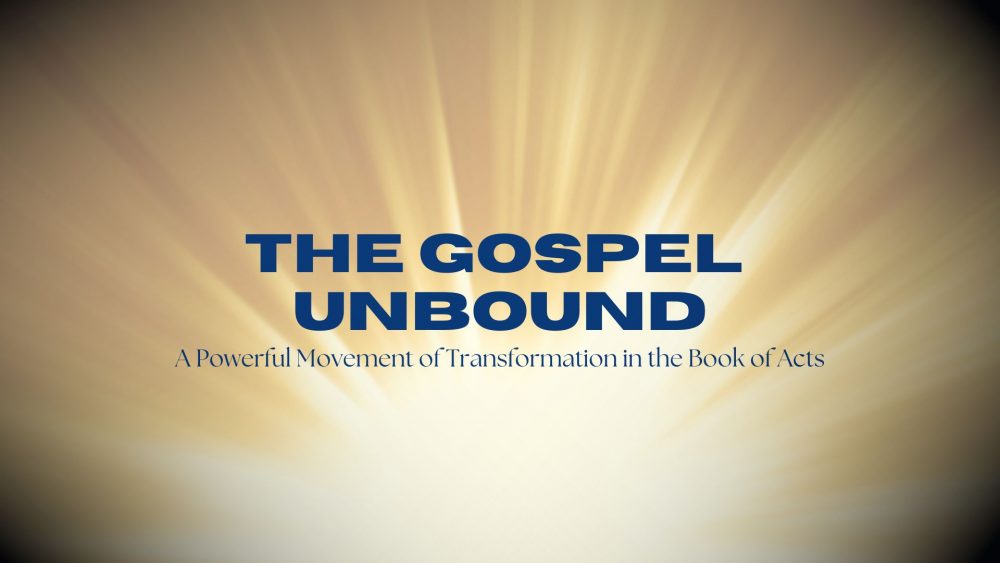Questions for Personal Reflection and Group Discussion
Read Acts 15:1-21, 30-31 (NIV):
Certain people came down from Judea to Antioch and were teaching the believers: “Unless you are circumcised, according to the custom taught by Moses, you cannot be saved.” 2 This brought Paul and Barnabas into sharp dispute and debate with them. So Paul and Barnabas were appointed, along with some other believers, to go up to Jerusalem to see the apostles and elders about this question. 3 The church sent them on their way, and as they traveled through Phoenicia and Samaria, they told how the Gentiles had been converted. This news made all the believers very glad. 4 When they came to Jerusalem, they were welcomed by the church and the apostles and elders, to whom they reported everything God had done through them. 5 Then some of the believers who belonged to the party of the Pharisees stood up and said, “The Gentiles must be circumcised and required to keep the law of Moses.” 6 The apostles and elders met to consider this question. 7 After much discussion, Peter got up and addressed them: “Brothers, you know that some time ago God made a choice among you that the Gentiles might hear from my lips the message of the gospel and believe. 8 God, who knows the heart, showed that he accepted them by giving the Holy Spirit to them, just as he did to us. 9 He did not discriminate between us and them, for he purified their hearts by faith. 10 Now then, why do you try to test God by putting on the necks of Gentiles a yoke that neither we nor our ancestors have been able to bear? 11 No! We believe it is through the grace of our Lord Jesus that we are saved, just as they are.” 12 The whole assembly became silent as they listened to Barnabas and Paul telling about the signs and wonders God had done among the Gentiles through them. 13 When they finished, James spoke up. “Brothers,” he said, “listen to me. 14 Simon has described to us how God first intervened to choose a people for his name from the Gentiles. 15 The words of the prophets are in agreement with this, as it is written: 16 “‘After this I will return and rebuild David’s fallen tent. Its ruins I will rebuild, and I will restore it, 17 that the rest of mankind may seek the Lord, even all the Gentiles who bear my name, says the Lord, who does these things’— 18 things known from long ago. 19 “It is my judgment, therefore, that we should not make it difficult for the Gentiles who are turning to God. 20 Instead we should write to them, telling them to abstain from food polluted by idols, from sexual immorality, from the meat of strangled animals and from blood. 21 For the law of Moses has been preached in every city from the earliest times and is read in the synagogues on every Sabbath.” … 30 So the men were sent off and went down to Antioch, where they gathered the church together and delivered the letter. 31 The people read it and were glad for its encouraging message.
- Throughout the book of Acts, we see human resistance (in the form of fear, anger and prejudice) threatening to hinder the gospel movement. What forms of human resistance to a gospel movement are there in our world today?
- Some of the Jewish Christians earnestly believed that people first needed to become Jewish before they could be saved. What are some similar barriers or requirements that some Christians put in the way of people becoming believers today?
- Why was circumcision such a big deal? What additional information do we see in Acts 15:5 about the issue being debated here?
- God was pushing these Jewish believers out of their comfort zones to get the gospel out to the whole world. When have you experienced God pushing you out of your comfort zone to share the gospel with others?
- Look at Peter’s words in Acts 15:7-11. What truths was Peter communicating here?
- In v.12, after hearing what Peter said, everyone grew silent and began to really listen rather than continuing to debate. If you’ve ever experienced a disagreement in a church body that was handled well, what were some factors that helped it to end well?
- Why did they include four restrictions in their decision (three of which were dietary restrictions that we no longer follow today) ? What principles can we draw from this for ourselves today? Talk about some ways you might need to compromise or sacrifice your own desires in order to avoid hindering others on their faith journey.
- What did you sense God saying to you through this passage and this message?

